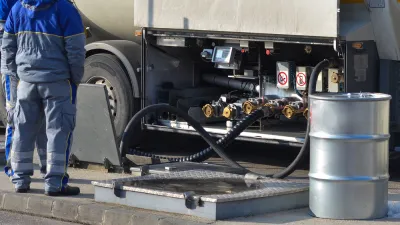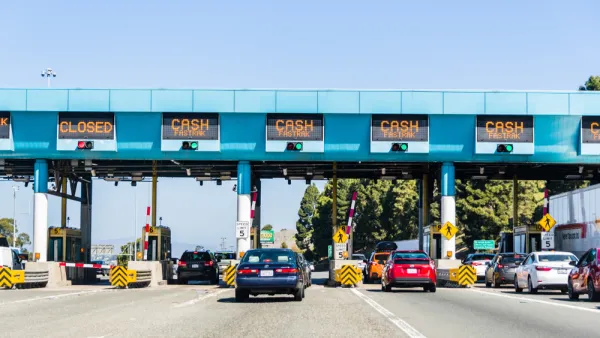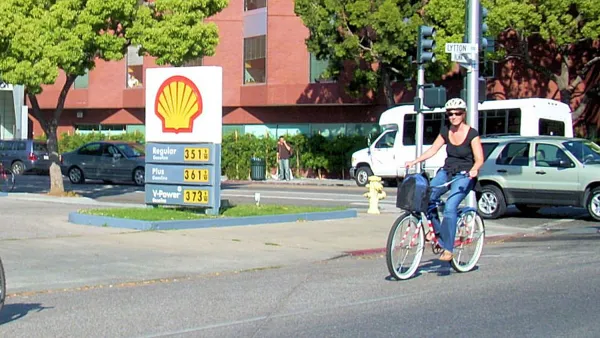Repeal proponents have already planned a sequel for Proposition 6, regardless of whether the measure passes, resulting in the loss of over $5 billion annually from new transportation user fees, including a 12-cents per gallon gas tax increase.

Shortly after voting on Proposition 6, "Voter Approval for Future Gas and Vehicle Taxes and 2017 Tax Repeal Initiative," voters will be asked to sign petitions for an initiative for the 2020 ballot "that would ensure fuel taxes, car sales taxes and truck weight fees are spent on transportation projects," reports Alexei Koseff for The Sacramento Bee on July 31.
The proposal expands on Republican arguments that the gas tax increase, passed last year by Gov. Jerry Brown and Democratic lawmakers, was unnecessary because the state already has plenty of money to pay for a backlog of road repairs and maintenance.
Unlike the taxes and fees in Senate Bill 1, the Road Repair and Accountability Act of 2017, the new initiative, which appears to be the brainchild of Carl DeMaio, who funded the current repeal initiative, brings in no new revenue. Instead, it diverts existing funds from the state's general fund to transportation, a trend seen elsewhere, particularly in states that are reluctant to hike transportation user fees like Texas.
For example, state legislation passed in 2011 requires that truck weight fees, about $1.1 billion according to Koseff, is used to pay debt service on Proposition 1B, the $19.9 billion transportation bond passed in November 2006. A much larger diversion would come from motor vehicle sales taxes.
The largest chunk of new funding for the plan comes from reallocating the sales taxes on automobiles to local transportation officials. According to a study [pdf] by the Center for Automotive Research, California sales taxes for new cars, used cars, parts and services totaled $6.5 billion in 2013.
There already is a "transportation lockbox" for fuel tax revenue, known as Article 19 in the state constitution, although it does allow revenue to be spent on transit guideways. In June, voters overwhelmingly passed Proposition 69 that provided lockbox protection for two SB 1 fees.
Koseff describes other aspects of the measure, including savings attained by outsourcing to the private sector. He also wrote a comprehensive description of Proposition 6 for those who are interested.
FULL STORY: Fix California roads without the new gas taxes? Here’s what it would take

Analysis: Cybertruck Fatality Rate Far Exceeds That of Ford Pinto
The Tesla Cybertruck was recalled seven times last year.

National Parks Layoffs Will Cause Communities to Lose Billions
Thousands of essential park workers were laid off this week, just before the busy spring break season.

Retro-silient?: America’s First “Eco-burb,” The Woodlands Turns 50
A master-planned community north of Houston offers lessons on green infrastructure and resilient design, but falls short of its founder’s lofty affordability and walkability goals.

Test News Post 1
This is a summary

Analysis: Cybertruck Fatality Rate Far Exceeds That of Ford Pinto
The Tesla Cybertruck was recalled seven times last year.

Test News Headline 46
Test for the image on the front page.
Urban Design for Planners 1: Software Tools
This six-course series explores essential urban design concepts using open source software and equips planners with the tools they need to participate fully in the urban design process.
Planning for Universal Design
Learn the tools for implementing Universal Design in planning regulations.
EMC Planning Group, Inc.
Planetizen
Planetizen
Mpact (formerly Rail~Volution)
Great Falls Development Authority, Inc.
HUDs Office of Policy Development and Research
NYU Wagner Graduate School of Public Service




























